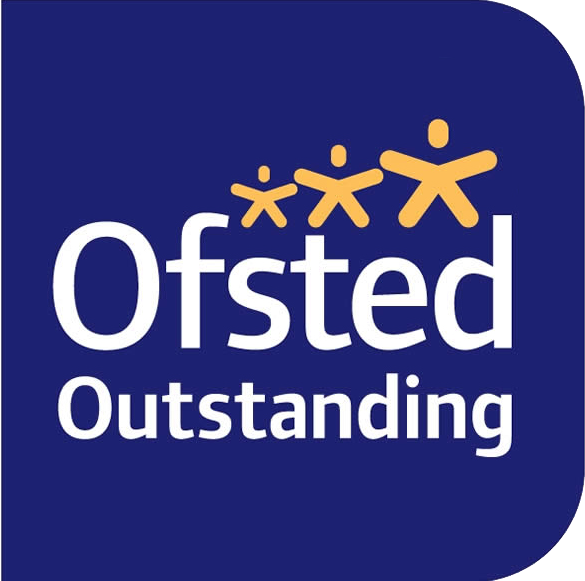| Subject/Key Stage/Area of responsibility: | World Views |
| Subject Leader: | Danielle Fenwick (DF) |
| Date: | 18.05.2023 |
Organisation
All students at Bank View, across all key stages, have 1 hour of World Views (formally RE) per week, in line with the national curriculum guidelines. At KS2 and in the Base classes, World Views is delivered by the class teachers. At KS3-KS4, World Views is delivered by DF who is a trained secondary World Views teacher. DF has taught World Views for over 15 years as a Head of Department where her team secured above national average GCSE results and an ALPs level 1 rating at AS and A Level.
Intention
World Views plays a vital role in helping pupils to engage with challenging spiritual, moral and social questions that arise in their lives and in society. World Views at Bank View actively promotes the values of truth, justice and respect for all and care of the environment.
The overarching concepts for World Views at Bank View are tied in with the school vision and support the delivery of SMSC:
| Believe | Personal growth – developing compassion and empathy Being the best, they can be – through guidance and encouragement |
| Values | Value – pupils valuing themselves and others Stewardship – caring for all creation Respect – showing tolerance of other beliefs, opinions and cultures Asking Big Questions – communicating effectively and listening to others Morality – understanding right from wrong, accepting rules and boundaries Courageous Advocacy – challenging injustice by standing up for the rights of others and values and to develop positive attitudes of respect towards other people; |
| Achieve | Enrichment – enhancing their spiritual, moral, social and cultural development Celebration – fostering confidence and enjoyment in developing academic and life skills |
The teaching of World View makes links between the beliefs, practices and value systems of a range of faiths and worldviews studied. The World Views curriculum will help to develop responsibility and respect for all aspects of diversity, whether it be social, cultural and religious, and prepare pupils well for life in modern Britain.
Implementation
Please see the following documents:
- World Views Secondary Curriculum Overview
- World Views Key Stage 3 Planning
- World Views Key Stage 4 Planning
Learning in World Views ensures that all students have access to a broad and balanced curriculum which develops knowledge and skills over time. World Views will be delivered thematically at KS2 and KS3 through carefully planned and adapted lessons. Following the Liverpool SACRE, the content will be tailored to suit students’ needs at Bank View. The breadth of the curriculum supports learners’ knowledge and understanding of religions and non-religious beliefs, such as atheism and humanism. End of unit assessments are given at the end of each topic. Progression is mapped coherently. The progression allows for effective differentiation, marking and feedback, and stretch for all. Pupils have access to key terminology and sources of wisdom. Regular extended writing allows pupils to develop their language and vocabulary.
In KS4 and KS5 students will follow the WJEC Entry Level Pathway for Humanities. Students are given opportunities to explore the fact that religious traditions of Great Britain are, in the main are Christian but that they are also diverse and include other faiths, such as Buddhism, Hinduism, Islam, Judaism and Sikhism, as well as non-religious beliefs, such as atheism and humanism. Students are also exposed to Philosophical and Ethical Studies in the Modern World, looking at current real-world issues. There is scope to develop their ability to construct well-argued, well-informed, balanced and structured written arguments, demonstrating their depth and breadth of understanding of the subject. Students are given opportunities to actively reflect, investigate and make meaning of relationships, the world and God.
Personalised Learning:
- A wide range of well-designed units of work that are differentiated and suited to the various needs of our learners. They provide support and structure for any teacher of World Views in the school.
- Pupils can choose their topics at KS4.
- World Views classrooms have an additional learning space which provided pupils/groups with a quieter learning space when needed.
Supporting + Extending:
- The school offers Entry level 3 to our most able pupils in KS4.
- Pupils are all extended using subject specific targets individual to each individual learner.
Assessment & Feedback:
- In World Views students completes formative assessments at the end of every unit of work.
- The assessment in World Views will always be a question(s). Whether it be an essay style question, question for a debate or multiple-choice questions will be dependent on the cohort. Students will always be given a variety of ways to record their answers.
- All students are given regular feedback, both written and verbally throughout a unit of work and after a formative assessment.
- Students are given the opportunity to correct, add to or amend their assessment.
- ‘MAD’ (make a difference) time is regularly provided in lessons for students to read comments, correct spelling etc.
- The World Views department follows the whole school marking policy.
Interventions:
- Every term, World Views staff assess pupils’ learning and record their progress. Pupils who are not making progress even with support are then placed on an intervention list.
- The pupils on intervention’s progress are assessed every half-term and adjustments are made accordingly.
Supporting Pupils’ Memory Retention:
- World Views schemes of work follow a spiralised curriculum to ensures that key themes are regularly revisited to help students retain information.
- Dual coding pedagogy is employed throughout World Views SOW.
- Last lesson recaps are utilised nearly every lesson.
- The World Views classroom ensures that each year group board is updated with key vocab and themes to encourage memory retention.
Moderation:
Since introducing the WJEC pathways to Bank View, many other departments have started following the curriculum. This has provided great moderation opportunities. Geography, History and Base 4 are following the same Humanities Pathway; therefore, I am able to moderate with Mrs Barker and Mrs Wood.
Impact
By the end of Key Stage 2 pupils will be familiar with key Christian ideas and Christian celebrations as well as some of the other major world religions. Pupils will be able to describe a range of religious concepts including the practices of prayer and worship as well as Christian sacraments such as Holy Communion and how they are performed.
By the end of KS3 pupils will be able to talk about religious rules such as The Ten Commandments and The Five Pillars of Islam and religious teachings such as the Good Samaritan. In addition, students will be increasingly confident in talking about the bigger questions in life, such as why does suffering happen and what happens when we die? Through the teaching of Stewardship, pupils will develop care and respect for each other and the world in which they live. Teaching of the Golden Rule which is upheld by all religions, and other religious stories and parables will instil and reinforce the qualities of kindness and tolerance and support the need for equality for all.
By the end of Key Stage 4 pupils will confidently articulate justified opinions on ethical issues, giving religious, non-religious and personal views. Pupils will be able to explain in detail how religious teachings in both Christianity and Islam can be applied to contemporary moral issues such as euthanasia, abortion, abuse of the world and the use of capital punishment. Pupils will be able to confidently articulate justified opinions on issues giving personal, religious, and non-religious views.
To conclude, the desired impact of World Views at Bank View is as follows:
- To promote religious understanding, discernment and respect and challenge prejudice and stereotyping.
- To promote the value of each student’s self-worth and thus help pupils to reflect on their uniqueness as human beings, share their feelings and emotions with others and appreciate the importance of forming and maintaining positive relationships.
- To promote spiritual, moral, social, and cultural development.
- To instil tolerance, empathy, and respect for others.
- To increase religious literacy.
- To demonstrate the ability to communicate thoughts on religious and ethical issues.
- To show an understanding of other religions, cultures, beliefs and traditions.
- To be able to read and understand a variety of texts and think about them critically.
- To understand differences and similarities between their beliefs and their neighbours and the importance of open-mindedness
- For students to confidently express their own beliefs.
- For students to reflect on their own beliefs whilst developing a curiosity, appreciation and wonder about others.
Cultural capital
Ofsted added the term ‘cultural capital’ to the inspection handbook in 2019. In paragraph 226, it defines it as…
‘the essential knowledge that pupils need to be educated citizens, introducing them to the best that has been thought and said, and helping to engender an appreciation of human creativity and achievement.’
Ofsted
World Views enhances our student’s capital in many ways. Students learn about pivotal figures within history, from Jesus, Guru Nanak, Alan Turing, Rosa Parks, Malala Yousefsi and Charles Darwin to name but a few. Not only do students get exposed to influential figures, but students in world views will learn about great ideas which have shaped and continue to shape our way of thinking. From design theory (teleology), utilitarianism, causation, eugenics, and natural law. The intent of the world views curriculum is for students, when they leave our doors, to be able to hold meaningful conversations about ‘big’ questions such as what happens when we die, how did we get here to is war ever acceptable?
The value of World Views on Employability and Careers
World Views students are highly employable. The Open University state that more than 82% of World Views/RE graduates go on to employment or further study, and 29% go onto professional jobs – more than any other Humanities and Social Science subject except architecture and languages. In particular, Religious Studies graduates work in the NHS; the civil service; youth and social work, advertising, investment and banking, law, politics, business, the creative industries, the charity sector and NGOs, publishing and journalism, and education.
The fact is, the skills developed in studying World Views are increasingly in demand in a complex, connected, global world. They help us to understand ourselves, our society, and the world.
- The ability to understand how people have thought and acted across different places and times, and the complexity of how social behaviours are shaped by beliefs and values.
- Contextualised critical and analytical skills, applied to the real world, and dealing with issues arising from multiple and conflicting interpretations of texts and traditions with sensitivity and empathy.
- Being able to understand different viewpoints and philosophies, from an interdisciplinary perspective—and apply that understanding to find practical solutions.
- Studying religion encourages self-awareness, initiative, creativity, and teamwork. Religious Studies students are excellent communicators and make great leaders.
The services sector makes up 80% of the UK economy, and this is only expected to grow in the future. The more that algorithms take over the workplace, the more such skills will be at a premium. World Views students are vital to solving the challenges of the future, the human consequences of the digital age.
World-Views-Secondary-Curriculum-Overview








